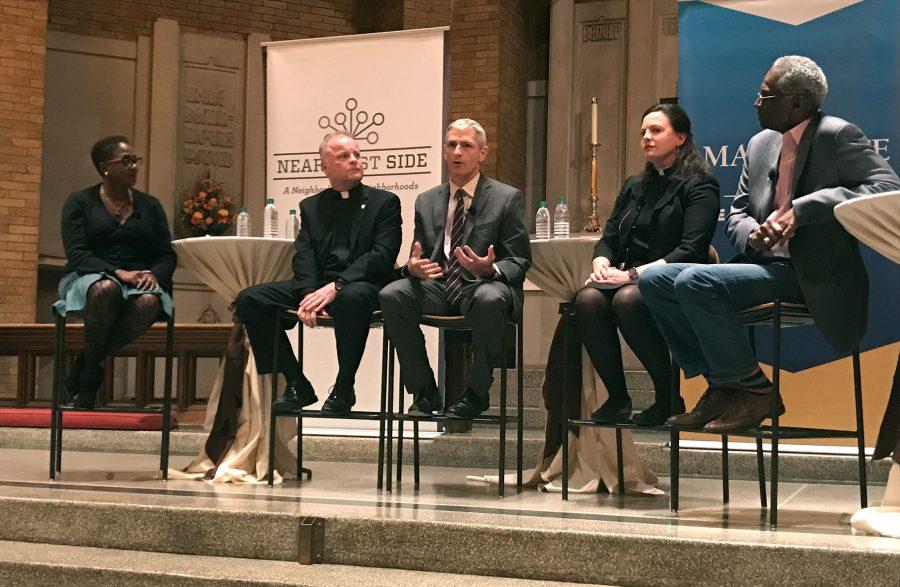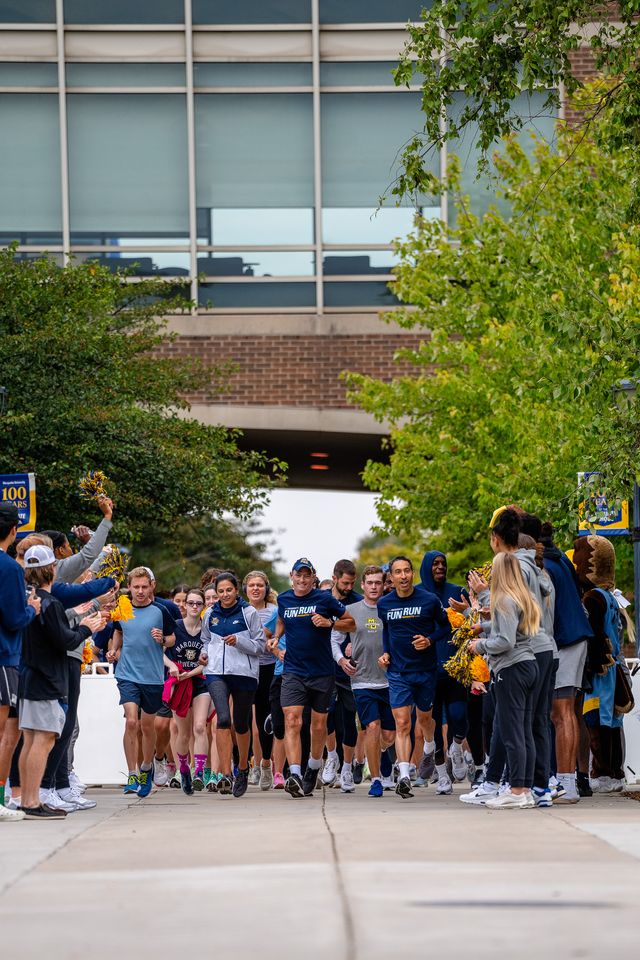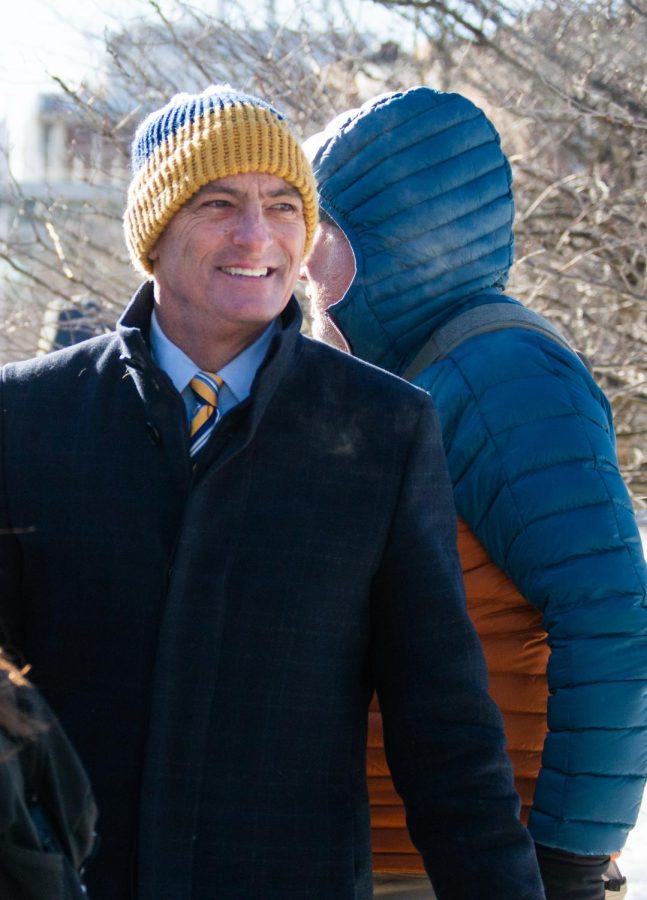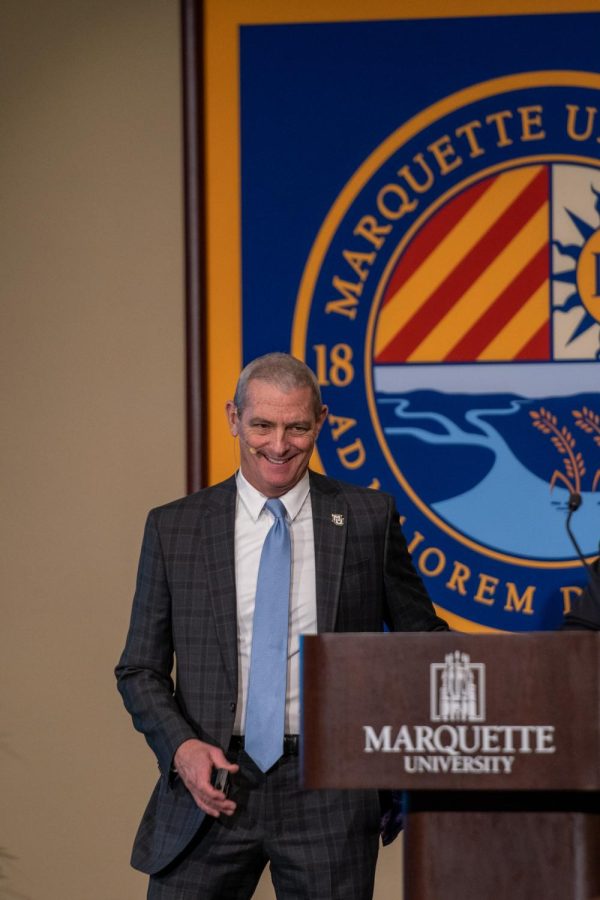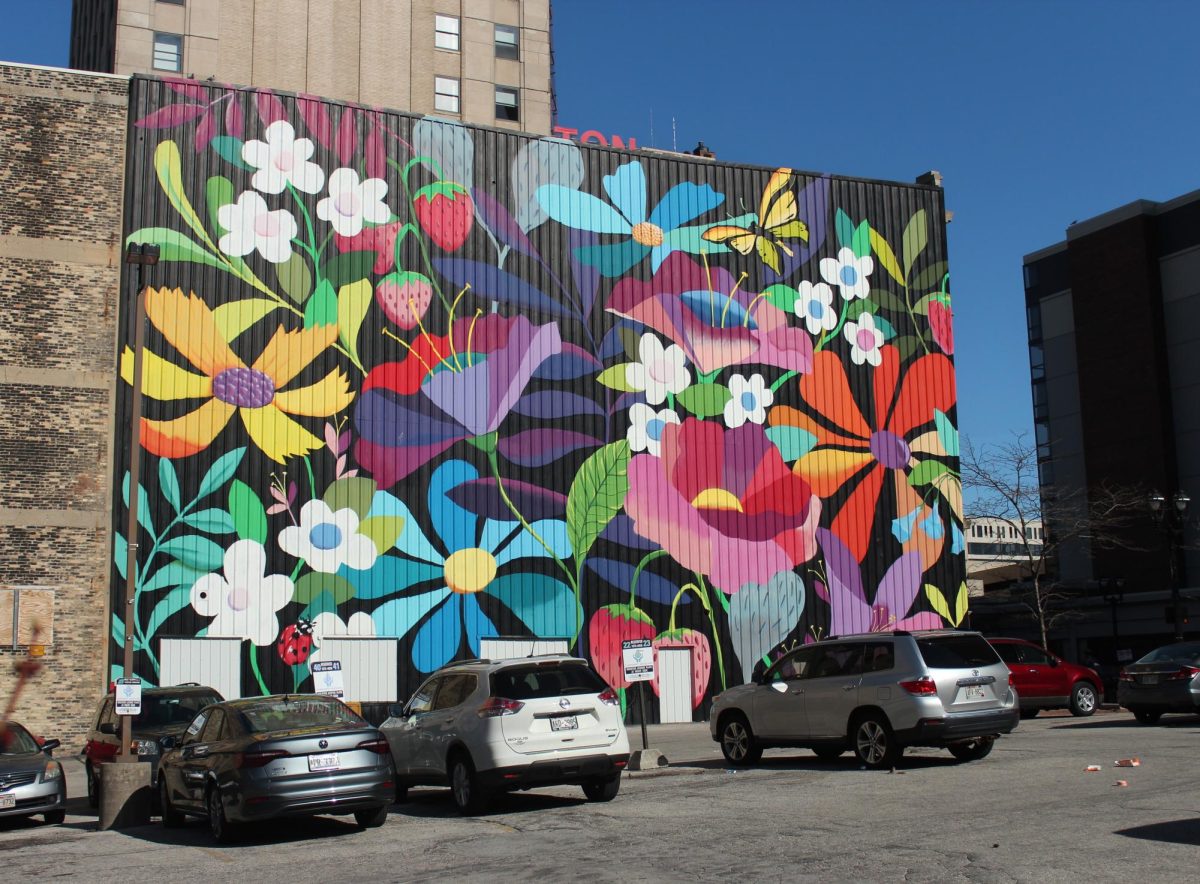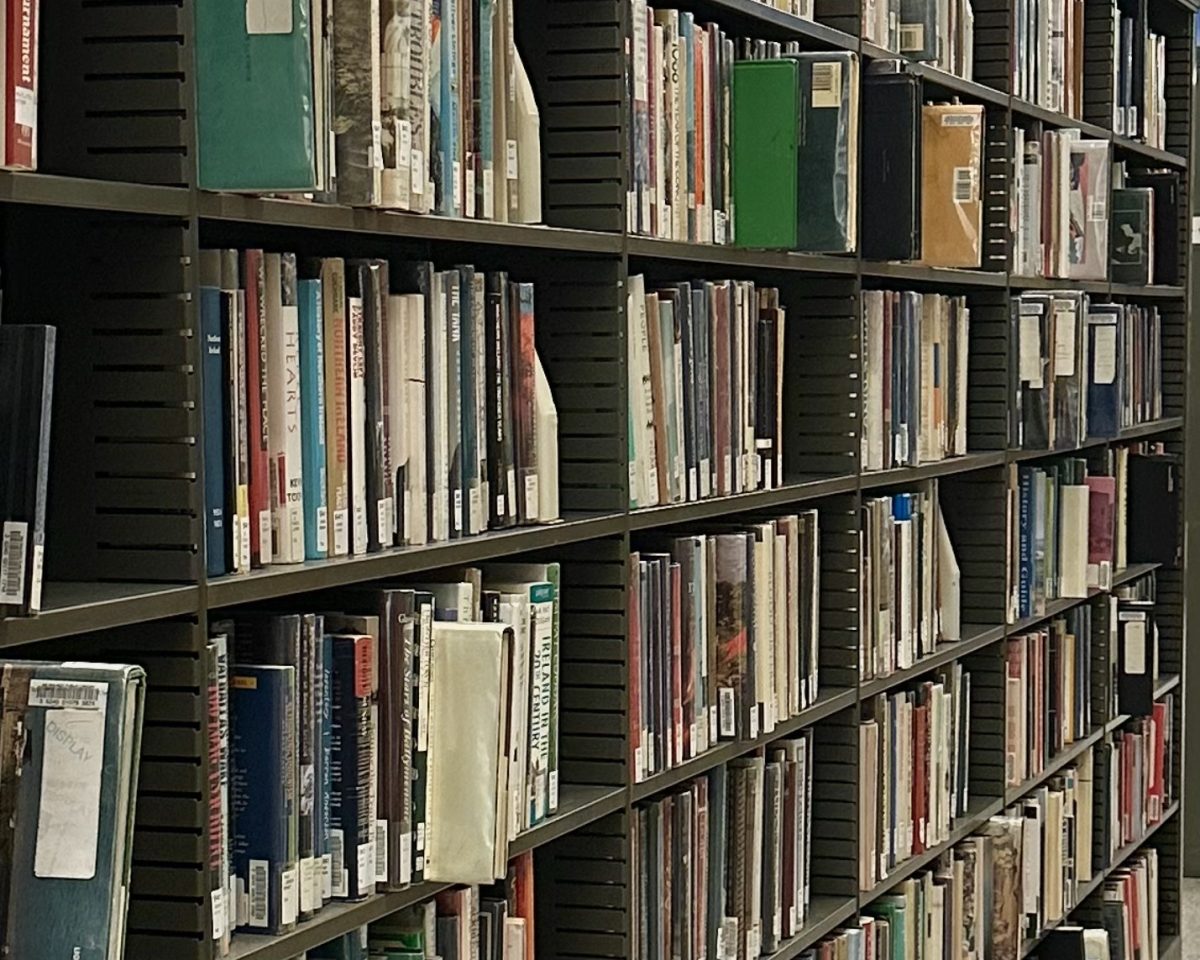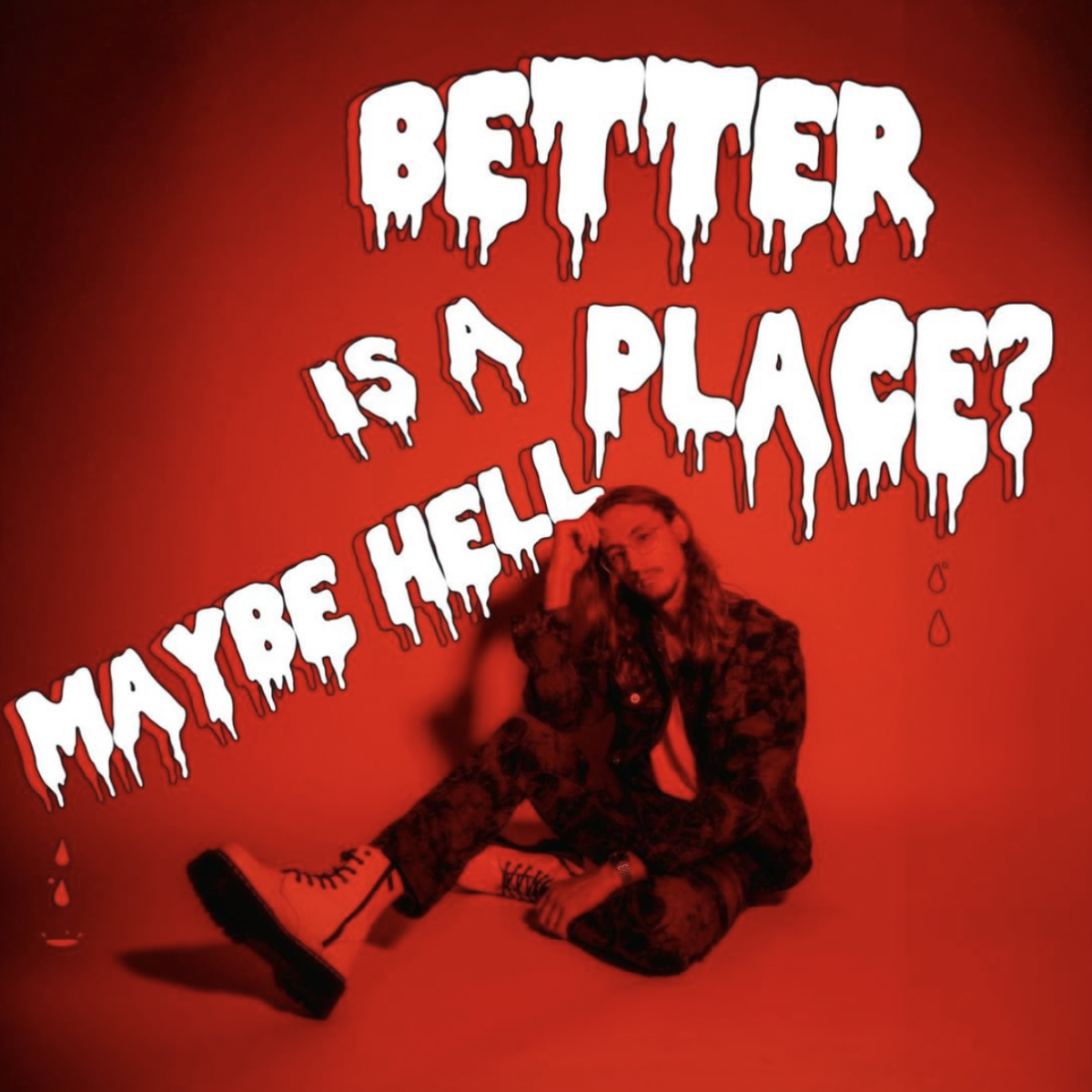Marquette hosted a discussion panel Thursday, Nov.3, at Redeemer Lutheran Church to cover issues on race and segregation in the city.
According to the latest study by Brookings Metro Monitor, Milwaukee is the most segregated metro area in the United States. “We’re on lists that I’m not very proud of,” university President Michael Lovell said. “Incarceration rates, low graduation and leading in community segregation.”
Marquette, in partnership with the Zeidler Center, an organization that facilitates civil dialogues and training for communities, generated discussion between the panelists and audience to discuss the near west side community.
Panelists included Lovell; Howard Fuller, Marquette education professor; the Rev. Michael Marco, president of Marquette University High School; and the Rev. Lisa Bates-Froiland, pastor at Redeemer Lutheran Church.
“The challenges we’re facing today are 20 to 30 years in the making with race and segregation,” Lovell said. “It takes the perspective of the entire community to solve the problem and we want Marquette to be a part of the solution.”
Vice president of student affairs Xavier Cole, who hosted the event, said the discussion about the turmoil in Sherman Park prompted the event.
The panel brought up other situations of racial discrimination within Milwaukee. One example was the Milwaukee Bucks center John Henson having police called on him as he attempted to shop at a jewelry store in Whitefish Bay.
Issues such as racism, segregation, economic standing, community divides, education inequalities, societal perceptions of parts of the city and safety were brought up throughout the discussion.
“Until we have a school system where everyone can have a similar education, we are failing the city,” Lovell said.
Other panelists mentioned safety regarding education.
“Students worry about getting to school alive and getting home alive,” Fuller said. “When it comes to concern, safety is at the top.”
Fuller brought up points in the discussion that race isn’t always the root of the problem. Economic standing and class divide the community and are often mistaken for racial segregation. Fuller mentioned that sixty-five percent of Milwaukee households have a total income of less than $50,000.
“(Racial) segregation is a larger result that our lives do not matter,” Fuller said. “It is economic segregation and economic powerlessness that divide our communities.”
Bates-Froiland said that much of the upper west side does not have public amenities that other upper-class parts of the community have. She suggested more access to public art such as murals, museums, music and parks.
After the panel discussion, the panelists and audience moved to the dinner portion of the event. During the meal, facilitators from the Zeidler Center led discussions at each table about each individual’s experiences with race.
The facilitators took notes during the discussion on the community members’ opinions on how to improve segregation in the upper west side. Monthly meetings, continuing panel dialogues and caucusing were suggested during the table discussion.
Although a majority of the audience were members of the greater Milwaukee community, various students attended to understand the issues dividing the city.
“I’m really interested in social justice and panel talks,” Nicole Sapio, a sophomore in the College of Arts & Sciences, said. “It’s important to know other people’s views on the community and make a difference.”
Over 150 people gathered in the church to participate in the discussion on the racial tension that has been years in the making. This was the first dialogue dinner and it was a success, Dan Bergen, executive director of the Office of Community Engagement, said.
“Students are part of this community,” Bergen said. “Their perspective and opinions on race and segregation in the near west side of Milwaukee are critical to this discussion.”

